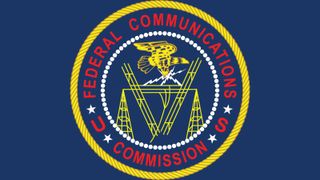FCC 28 GHz Band Auction Launching Wednesday


The FCC is launching its latest spectrum auction Wednesday (Nov. 14), this one of unused 28 GHz spectrum.
It is the first of two auctions to free up more spectrum for 5G. That auction will be immediately followed by an auction of spectrum in the 24 GHz band, though senior FCC officials who briefed reporters on the auction said they did not know how long the first auction would take.
The FCC has no revenue target for the auctions, and actually can't set those unless it is raising spectrum to compensate federal users and then it has to set such revenue targets to make sure it is compensating those users for moving. It is not doing that in either of these auctions.
Related: FCC Votes to Put More Broadband Spectrum in Play
The officials did say that the minimum aggregate bid on the spectrum is low--$40 million--because its goal is to get that spectrum out in the market and built out for 5G.
Combining the two auctions with the planned 2019 auctions of 37, 39 and 47 GHz bands, the FCC is auctioning almost 5 GHz of spectrum, which is more than all the terrestrial wireless carriers are using combined.
The FCC concedes it has never pushed so much spectrum into the market at one time before, which could mean lower prices, but the point is to get the spectrum out there "fast."
Broadcasting & Cable Newsletter
The smarter way to stay on top of broadcasting and cable industry. Sign up below
There are performance requirements to build out the spectrum, and the officials signaled the FCC has been and will be more vigorous in enforcing its construction deadlines and signaled the FCC would frown on companies sitting on their spectrum and seeking waivers at the last minute. They said the requirement for a waiver of the buildout deadlines is "extraordinary circumstances," which is a high hurdle.
The 28 GHz auction (auction 101) will offer two 425 MHz blocks of 3,072 Upper Microwave Flexible Use Service (UMFUS) licenses in the 27.5–28.35 GHz band, while the 24 GHz auction (auction 102) will offer 2,909 UMFUS licenses in the 24.25–24.45 GHz and 24.75–25.25 GHz (24 GHz) band.
The size of the 28 GHz blocks make them ideal for 5G said the officials--that means 100 Mbps-plus services. The auction is a traditional simultaneous-bid auction with licenses going to the highest bidder. Verizon and others already hold licenses in the band, which means that many of the spectrum licenses (in smaller, county-sized increments) being auctioned are for more rural rural areas.
Qualified bidders in the 28 GHz auction include major players AT&T, Verizon (Cellco), T-Mobile, Frontier and U.S. Cellular.
Auction 102 bidders include the same big players plus one cable wireless player, Cox.
Unlike auction 101, the 24 GHz band is almost completely empty, which means lots of clean spectrum (700 MHz worth) that is being auctioned in larger partial economic area (PEA) licenses.
Auction 102 will be a clock auction, which means it will go faster than 101. There are 40 qualified bidders for auction 101, which means they have put down upfront payments. Upfront payments are not yet due for auction 102, so there is no bidder total, but 58 bidders have completed applications for that second auction. They won't be qualified until they show the FCC the money, as it were.
Contributing editor John Eggerton has been an editor and/or writer on media regulation, legislation and policy for over four decades, including covering the FCC, FTC, Congress, the major media trade associations, and the federal courts. In addition to Multichannel News and Broadcasting + Cable, his work has appeared in Radio World, TV Technology, TV Fax, This Week in Consumer Electronics, Variety and the Encyclopedia Britannica.

